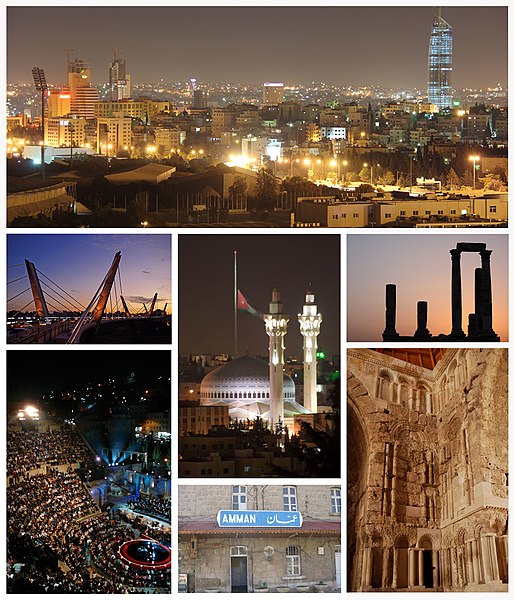Difference between revisions of "Adopting from Jordan"
(→Other) |
(→Who Can Be Adopted) |
||
| Line 62: | Line 62: | ||
=Who Can Be Adopted= | =Who Can Be Adopted= | ||
| + | In addition to U.S. immigration requirements, Jordan has specific requirements that a child must meet in order to be eligible for [[adoption]]: | ||
| + | |||
| + | '''[[Relinquishment]]:''' There is no [[relinquishment]] in Jordan. The MSD considers all Jordanian children under its care as abandoned. | ||
| + | |||
| + | '''[[Abandonment]]:''' The MSD considers all Jordanian children under its care as abandoned. If the parents are unknown and the children are under the care of the MSD, they are considered abandoned. | ||
| + | |||
| + | '''Age of Adoptive Child:''' MSD may give legal guardianship for a child of any age. | ||
| + | |||
| + | '''Sibling Adoptions:'''o sibling legal guardianship exists in Jordan. | ||
| + | ##[[Special Needs]] or Medical Conditions: Children with [[Special Needs|special needs]] or medical conditions are eligible for guardianship. | ||
| + | ##Waiting Period or [[Foster Care]]: The period depends on the child’s availability, and could take up to one year. | ||
| + | |||
| + | Caution: Prospective [[Adoptive Parents|adoptive parents]] should be aware that not all children in orphanages or children’s homes are adoptable. In many countries, birth parents place their child(ren) temporarily in an [[orphanage]] or children’s home due to financial or other hardship, intending that the child return home when this becomes possible. In such cases, the [[Birth Parent|birth parent]](s) have rarely relinquished their [[Parental Rights|parental rights]] or consented to their child(ren)’s [[adoption]]. | ||
=How to Adopt= | =How to Adopt= | ||
Revision as of 05:53, 24 March 2014
Contents
Hague Convention Information
Jordan is not party to the Hague Convention on Protection of Children and Co-operation in Respect of Intercountry Adoption(Hague Adoption Convention). Intercountry adoptions of children from non-Hague countries are processed in accordance with 8 Code of Federal Regulations, Section 204.3 as it relates to orphans as defined under the Immigration and Nationality Act, Section 101(b)(1)(F).
Note: Adoption is not allowed by the law of Jordan. However, the Ministry of Social Development (MSD) may grant guardianship of children to people who are not the child’s parents and who intend to adopt the child in a different country. Custody and Alternative Families is a system followed in Jordan. This system is similar to adoption, but differs in that it maintains the original parental relationship as mandated by Islamic Law. This system is consistent with Jordanian Juvenile Law Number 24 of 1968 and amendments.
U.S. IMMIGRATION REQUIREMENTS FOR INTERCOUNTRY ADOPTIONS
To bring an adopted child to the United States from Jordan you must meet eligibility and suitability requirements. The U.S. Department of Homeland Security, U.S. Citizenship and Immigration Services (USCIS) determines who can adopt under U.S. immigration law.
Additionally, a child must meet the definition of orphan under U.S. immigration law in order to be eligible to immigrate to the United States on an IR-3 or IR-4 immigrant visa.
Who Can Adopt
Under Jordanian law, a child is considered to be “abandoned” if the child is placed in the care of the MSD and (1) the parents are unknown OR (2) the child is born out of wedlock.
In addition to U.S. immigration requirements, you must also meet the following requirements in order to obtain a guardianship in Jordan:
Residency
None
Age of Adopting Parents
The guardian father must be 35-55, and the guardian mother 30-50 years old.
Marriage
Jordanian law stipulates that all prospective parents for legal guardianship MUST be Muslim, married for five or more years, and medically certified as infertile in order to obtain legal guardianship in Jordan. (In select situations, and on a case by case basis, non-Muslims may be granted guardianship/custody by a juvenile court order issued through the civil court). Single persons cannot acquire legal guardianship of children in Jordan. Same-sex marriages are not recognized in Jordan, and therefore same-sex couples cannot gain guardianship as a couple. However, the Juvenile Jordanian Act provides that a child may be placed as a foster child with a single person (male or female), or with a family with children by a court order, with the specification that the child be taken care of as if they are in his or her biological family.
Income
The guardians’ employer(s) must provide detailed information about their income and employment status, as explained below.
Other
The prospective family for legal guardianship may have up to two children total, including the child(ren) for the legal guardianship. If the prospective guardians already have one child, then the Jordanian child legal guardianship must be of the same sex as that child. Prospective guardian parents who have previously gotten legal guardianship in Jordan must wait a minimum of two years before seeking legal guardianship of another child of the same gender. Prospective guardians who are U.S. citizens may also want to review the general information on Adoption of Children from Countries in which Islamic Shari'a law is observed.
Who Can Be Adopted
In addition to U.S. immigration requirements, Jordan has specific requirements that a child must meet in order to be eligible for adoption:
Relinquishment: There is no relinquishment in Jordan. The MSD considers all Jordanian children under its care as abandoned.
Abandonment: The MSD considers all Jordanian children under its care as abandoned. If the parents are unknown and the children are under the care of the MSD, they are considered abandoned.
Age of Adoptive Child: MSD may give legal guardianship for a child of any age.
Sibling Adoptions:o sibling legal guardianship exists in Jordan.
- Special Needs or Medical Conditions: Children with special needs or medical conditions are eligible for guardianship.
- Waiting Period or Foster Care: The period depends on the child’s availability, and could take up to one year.
Caution: Prospective adoptive parents should be aware that not all children in orphanages or children’s homes are adoptable. In many countries, birth parents place their child(ren) temporarily in an orphanage or children’s home due to financial or other hardship, intending that the child return home when this becomes possible. In such cases, the birth parent(s) have rarely relinquished their parental rights or consented to their child(ren)’s adoption.
How to Adopt
Adoption Authority
The Process
Traveling Abroad
After Adoption
SOURCE
Intercountry Adoption, Bureau of Consular Affairs. U.S. Department of State Country Information








